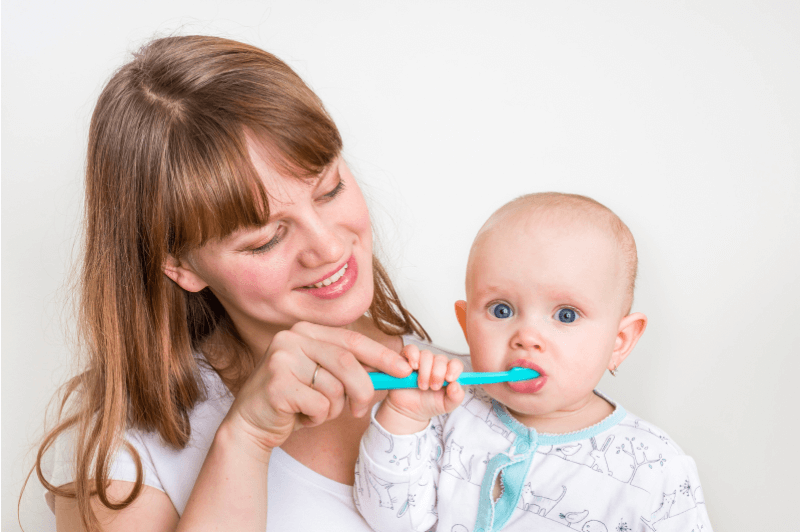Oral hygiene is a crucial part of a baby’s overall health, and starting early is essential for establishing good habits and preventing future problems. Many parents have questions about when and how to start oral hygiene care for their children. This article aims to clarify these questions and provide practical guidelines.
Before the First Teeth
Oral hygiene care for the baby should begin even before the first tooth appears. Even if you don’t see the teeth, they are already present below the gum line.
• Gum Cleaning: Use a clean, damp gauze or cloth to gently clean the baby’s gums at least twice a day, especially after feedings and before bedtime.
• Avoid Sugar: Do not add sugar to bottles and avoid sugary juices.
• Careful Use of Pacifiers: If you choose to use pacifiers, ensure they are always clean and do not dip them in sweet substances.
The Arrival of the First Teeth
Generally, the baby’s first teeth start to appear around 6 months of age, but this can vary.
• Brushing: As soon as the first tooth appears, begin brushing it twice a day with a soft toothbrush and a minimal amount of fluoride toothpaste (the size of a rice grain).
• Dentist Visit: Schedule the first dentist visit when the first tooth appears or on the baby’s first birthday, whichever comes first.
• Be Cautious with Nighttime Feedings: Avoid letting the baby fall asleep with a bottle, as milk can stay on the teeth and cause cavities.
As More Teeth Appear
• Teach Oral Hygiene Habits: As the baby grows, teach them to spit out toothpaste after brushing and not to rinse their mouth with water immediately.
• Supervision: Supervise brushing until the child is old enough to do it alone, usually around the age of 6.
• Healthy Eating: Promote a balanced diet and limit the consumption of sugars and sticky foods.
• Regular Dental Visits: Continue with regular dental visits for check-ups and cleanings.
Conclusion
Taking care of a baby’s oral hygiene is an investment in the child’s overall health and well-being. Establishing good habits from an early age can help prevent cavities and other oral problems, ensuring a healthy smile for the future.
Disclaimer
The information presented in this article is purely informative. While we aim to provide general guidance on baby oral hygiene, it is essential to consult a pediatric dentist to discuss any concerns or decisions related to your child’s oral health. No information in this article can replace the knowledge and judgment of a health professional.
